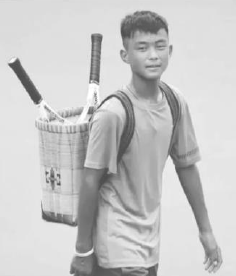| 01. | A.in √ | B.for | C.with |
| 02. | A.if | B.when √ | C.because |
| 03. | A.teacher | B.teachers | C.teacher's √ |
| 04. | A.take | B.to take √ | C.taking |
| 05. | A.success | B.successful | C.successfully √ |
| 06. | A.hard √ | B.harder | C.the hardest |
| 07. | A.ask | B.asked | C.were asked √ |
| 08. | A.a √ | B.an | C.the |
| 09. | A.tell | B.tells | C.told √ |
| 10. | A.she | B.her √ | C.hers |

| 简介 | 1986年11月出生于云南 |
| 主要经历 | 2003年观看杨利伟进入太空,梦想将来可以进入太空;2005年进入北京航空航天大学学习;2018年参加航天员选拔,并于2023年7月进入太空 |
| 感悟 | ... ...(请补充至少2点) |